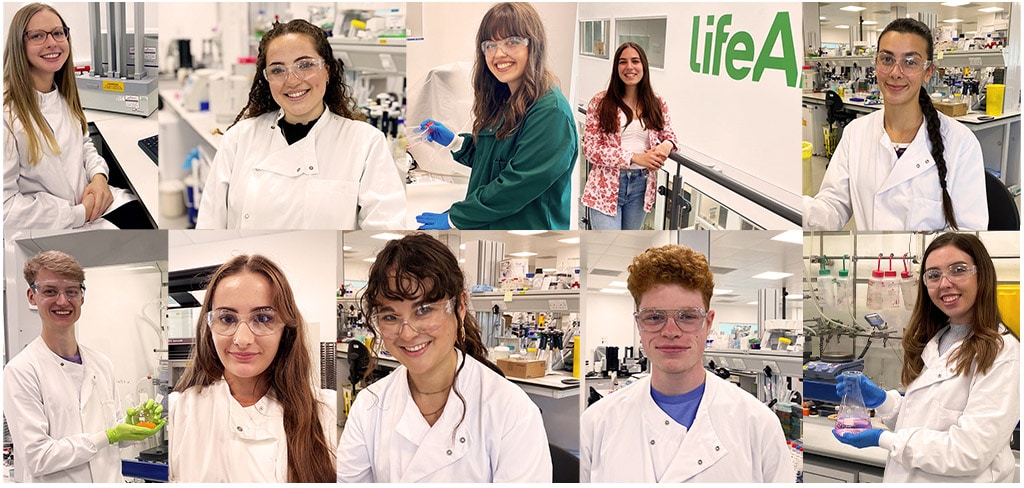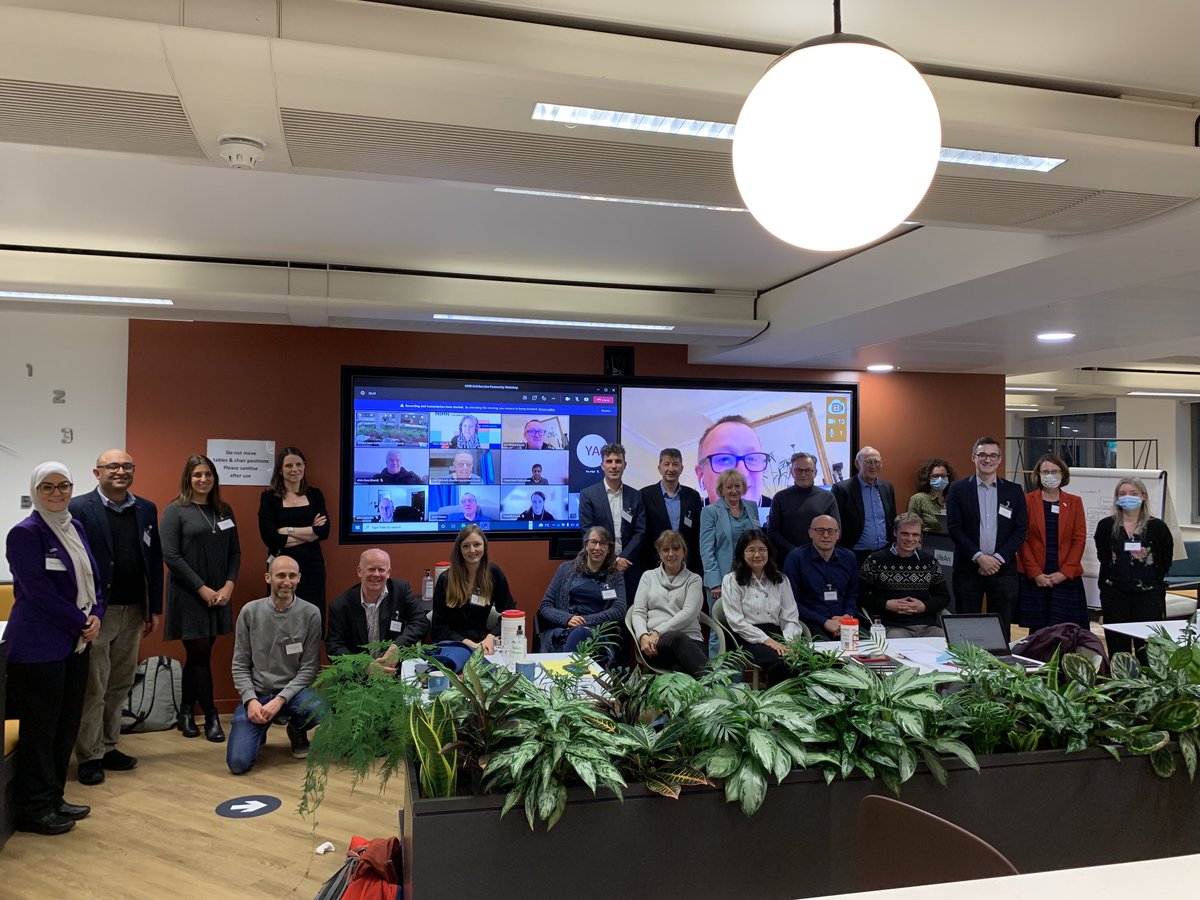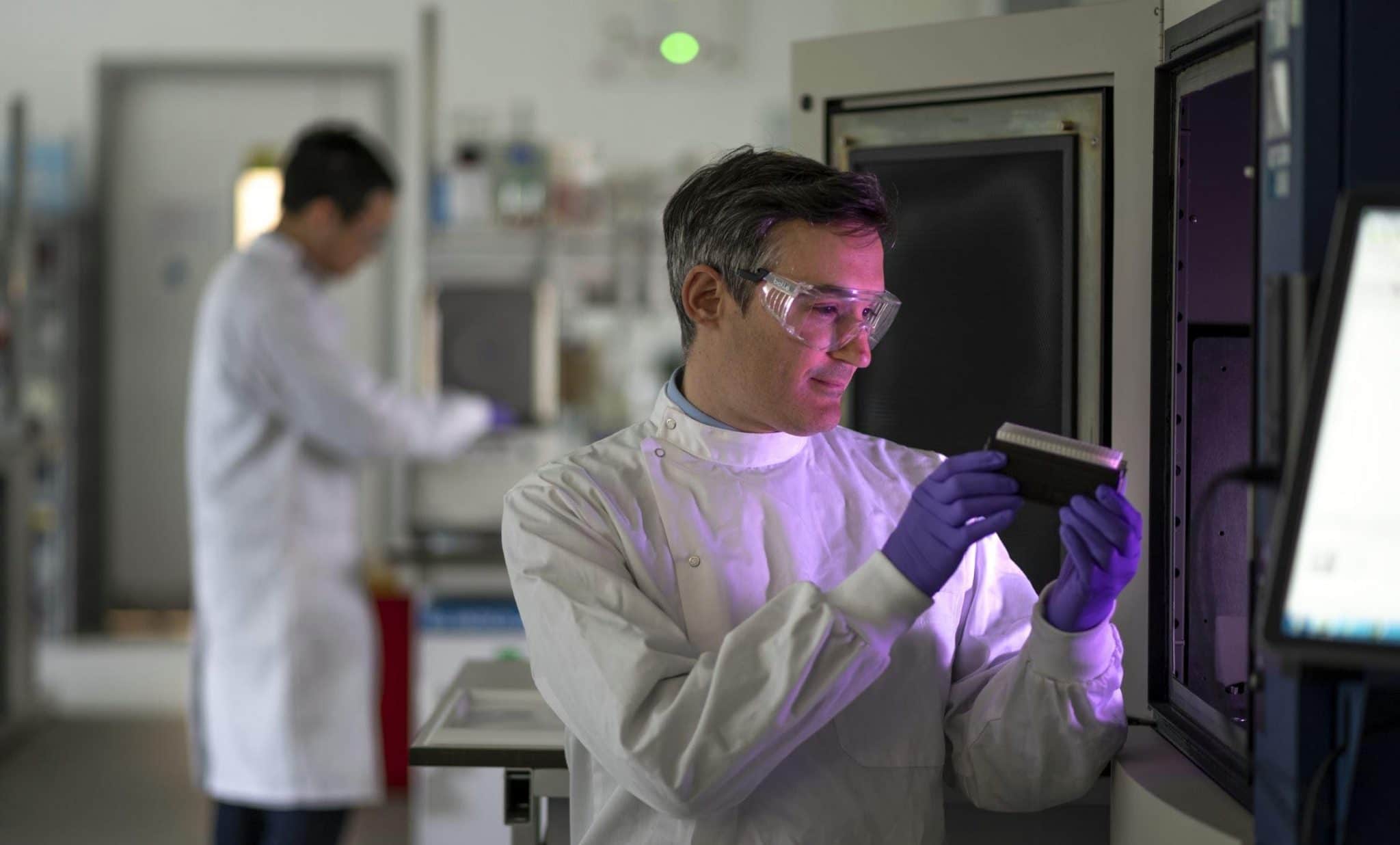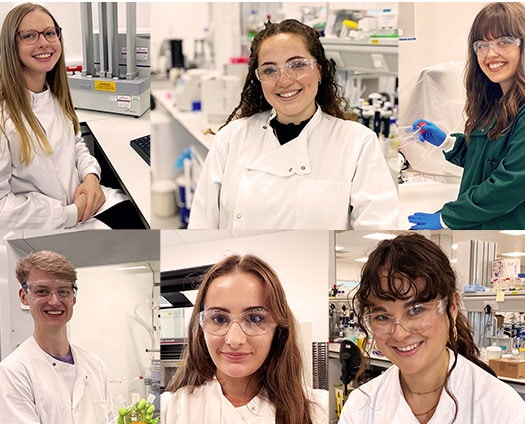As we bid farewell to another challenging year, we reflect on everything that has happened during 2021 and how we have worked with our partners and colleagues.
Here’s a snapshot of what we’ve achieved together this year. Thank you to everyone who has worked with us in 2021 and here’s to a successful 2022!
A busy start – drug screening, a new trustee and lots of investment
In January, we joined with the Medical Research Council (MRC) to fund a new Covid-19 drug screening and resistance hub (CRUSH) in Glasgow. The facility has been helping support the global scientific effort, with pre-clinical drug screening and resistance assays for SARS-CoV-2, as well for other dangerous and deadly viruses.

In February, we provided £5 million to the GenOMICC Covid-19 Study led by the GenOMICC consortium in partnership with Genomics England. The study, launched in May 2020, is using genomics to investigate why some people are affected more severely by Covid-19, and will increase our understanding about the disease.
We also announced our £10 million investment in the Illumina Accelerator, which provides selected start-ups with seed investment and access to Illumina sequencing systems and reagents. It also brings business guidance, genomics expertise and fully operational lab space adjacent to Illumina’s campuses in Cambridge or the San Francisco Bay Area. LifeArc’s £10 million forms half of £20 million UK capital commitments Illumina has secured from a select group of investors.
We joined the MRC and the Biotechnology and Biological Sciences Research Council (BBSRC) to create an £18m network of three innovation hubs for gene therapy to advance promising research into new treatments for patients. Later in the year construction began on the new centre in Sheffield and the new NHS Blood and Transplant site in Bristol, while the King’s College London/Royal Free/UCL Hub is already able to manufacture clinical grade viral vectors.
A busy spring and summer
In April, we hosted a panel of experts to discuss the opportunities and challenges faced by charities and researchers searching for new uses for old medicines. We then published the findings in our report, Repurposing medicines: the opportunity and the challenges (PDF), which provides information to support charities and researchers to develop strategies to treat diseases which currently have few effective therapies.
With lockdown easing in May, we took part in a £6 million financing round into Cumulus Neuroscience, a company advancing a state-of-the-art platform that can capture physiological and digital biomarkers of disease progression and treatment response in patients. The funding supports the delivery of clinical trial data and AI-powered insights to develop life changing central nervous system therapies, faster.
Also in May, we joined forces with the MND Association to commit £1 million to boost the search for new treatments for motor neurone disease (MND), matching the amount raised by Leeds Rhinos’ rugby coach Kevin Sinfield and the MND Association to create the fund dedicated to stimulating research into practical treatments. The fund was later joined by the My Name’5 Doddie Foundation’s contribution, bringing the total funding available to £1.5 million. Applications have just been peer reviewed and we hope to reveal the successful projects in early 2022.
And an innovative gene therapy programme that we helped sponsor could pave the way for new treatments for neurodegenerative diseases. Experts at the University of Sheffield will test if it could help treat motor neurone disease (MND) and frontotemporal dementia (FTD) patients who have faults in a gene called C9orf72.

In September we said a fond farewell to our 2020 cohort of industrial placement students, and asked them to tell us about the highlights of their placements. Find out what they thought about their time with us.
Autumn – a time for scientific discoveries and new partnerships
The ATTRACT study – a phase 2 trial which we helped to fund – found an investigational treatment may reduce the need for a ventilator for hospitalised Covid-19 patients. These findings, published in EClinicalMedicine, have led to a larger trial to evaluate the safety and efficacy of the new treatment in 600 patients.
In November, we announced our new strategy which sets our direction and priorities until 2030.
Our scientists, in collaboration with researchers in the UK and Germany, developed a promising new approach to potentially treat Alzheimer’s disease – and also vaccinate against it. The study, published in Molecular Psychiatry, found that both the antibody-based treatment and the protein-based vaccine developed by the team reduced Alzheimer’s symptoms in mouse models of the disease. We are now working hard to fund a commercial partner to take this work forward.
Together with researchers in Italy, we created a screening test that could help speed up the discovery of potential medicines to treat brain and spinal cord diseases amyotrophic lateral sclerosis (ALS) and frontotemporal dementia (FTD).
We joined a syndicate of investors to support Closed Loop Medicine. The £13 million financing deal will allow the company to advance their personalised drug and digital therapy combination products using their proprietary platform. This approach will enable doctors to better use data to optimise drug doses alongside providing non-drug therapies such as behavioural support. For patients this means receiving more personalised and better tailored care.
As the year comes to a close
In December, we welcomed partners, patients, clinicians and scientists to a kick-off meeting for a joint initiative with My Name’5 Doddie, MND Association, MRC and NIHR. On the day, the MND community came together with patients to plan a joint application to accelerate translational MND research.

We rounded off the year by taking part in an $80 million Series A funding round for AviadoBio to develop pioneering new gene therapies for neurodegenerative diseases. The funds will be used to advance AviadoBio’s lead program in frontotemporal dementia (FTD) into the clinic, progress its preclinical assets, including a form of MND called amyotrophic lateral sclerosis (ALS), and continue to expand its industry-leading team.
As you can see, 2021 has been packed full of exciting initiatives and news for LifeArc. We look forward to 2022 and continuing our work to make a difference to patients, their families and carers.
Find out more
Would you like to keep up to date with LifeArc news? Sign up here to receive our quarterly e-newsletter.




